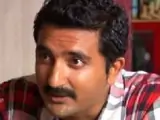More on Yudhistir's dharama.I feel he is perhaps one of the most misunderstood character's of MB people view him as weak because perhaps he wasn't as good a warrior as his two younger brother's but i have always felt he fought more with his mind than weapons.His concept of dharma was also quite logical and intelligent yes i can't understand some of his actions as well because i am extremely emotional and most of my decisions are from my heart and not my mind but except for dhyut sabha when yudhishtir lost all his senses i feel he is perhaps the most mature and intelligent of the pandavas
Yudhistir's dharma
This is during the sixth year of exile when Bhima tried to convince yudhishtir to do something
Bheema, I deserve to have you say all this to me, my brother. Your words are like livid needles in my heart; and for what I did, I deserve worse. It is my fault we are here. It is not as if I did not know I would lose my reason, once I sat at the dice-board. Shakuni knew this and how to goad me on; but I knew it too. It wasn't the first time I had played dice. He sighed and his eyes were moist. 'What is done is done and nothing I can say or do will fetch back time. I am guilty and I must learn to live with my guilt, finding solace where I may for making all of you suffer. Nothing you say can be worse than my own memories of that day. Over and over again, I see the dice rolling ruin out of Shakuni's smooth hands. I hear myself losing my kingdom, my brothers, myself, Panchali, everything. And it is like dying, worse than dying, for these memories are fraught with such terrible shame. But I must learn to be brave: to accept what I did, to live with it and to overcome it.
Draupadi, Bheema, whatever you say to me, your harshest accusations can only be less than my crime deserves.
He fell silent. Bheema was certain he had convinced Yudhishtira. All that remained was for his brother to give the word and they would swoop down on Hastinapura and set everything right again.
Then, lowering his voice, Yudhishtira spoke so softly that he was almost speaking to himself. But the others heard him clearly and there was no mistaking what he said.
Yes, Bheema, it is only true, what you say I have done. But there is one other thing. At the end of my folly, when our kingdom was lost at the second game of dice, I gave my word that I would spend twelve years in the jungle in exile and a thirteenth in disguise. And, hear me well, Bheema, Draupadi, all of you: my word is sacred and I will not break it.
He spoke calmly, but it was clear he meant what he said. It was Yudhishtira, their older brother and husband, who spoke and now it was Yudhishtira their king. He said, At the end of thirteen years, if Duryodhana refuses to give us back our kingdom, then, Bheema, I shall indeed become as angry as you want me to. Then I will think of killing our enemies and, at that time, no one will stop me. Just as no one will persuade me today, because I know I have returned to the path of dharma and I will not leave it again.
At the end of thirteen years, if they do not give back what is ours, we shall have war with them. Then, Bheema, you can strew the field of battle with our enemies corpses and you can do it with my blessing. You can dismember Dusasana and break Duryodhana'ss thigh. Arjuna, you can kill Karna and his men. Sahadeva can kill Shakuni and Nakula can kill his son Uluka. And, Panchali, you can feast your eyes on the dead and wash your hair in Dusasana's blood.
He paused and it was so strange for the others to hear their pacific brother speak like that of war and killing. They could almost see the jungle turn into a battlefield and the lake before them into blood. They sat bemused by the visions Yudhishtira conjured for them. He went on as in a dream, still speaking as softly as night fell.
I will fight beside you then. I will also let my hands and my weapons speak for me. Ah, yes, I will also let loose the fiend, rage, whom I would have shackled for thirteen long years. And no one will say Yudhishtira is the same man who stood silently in the court of Hastinapura while his wife and brothers were humiliated, repeatedly. No one will believe it.
He spoke simply, from his heart and not Bheema or Draupadi dared talk back to Yudhishtira. It was as if he had been called on to prove he was worthy of being their king: that he could contain them. No one could have proved it so quietly, so effectively.
Bheema, I swear everything I have said will come to pass if they don't keep their word at the end of thirteen years. But not a day before that. For, in the meanwhile, I must keep my own word. Otherwise, dharma will desert me and I shall be no better than they are.
Then he paused, before saying, There is something else. You imagine the Kauravas are perfectly happy now, that they have sent us into exile. You think they are enjoying the fruits of their crime. Bheema, things are not what you imagine. I tell you, Dhritarashtra hasn't a moment of peace. His conscience savages him for what he has done to us and fear chokes every breath he draws. His life has turned into a hell and he is in constant dread of the day we return to claim what is ours. Your threats haunt him and he suffers anguish worse than death. Bheema, our uncle is already paying for what he did.
And so also, Duryodhana and the others. They are only human and guilt will not spare them its torments. No man who breaks dharma escapes the consequences. The seat of dharma is not somewhere far from a man, or in heaven, but in his own heart. With all the reasoning in the world, the one person he can never escape is himself. Our enemies already pay for their sin. So let us be masters of ourselves, in the knowledge that, even today, they are punished fiercely by guilt and fear. At the end of thirteen years, if they have not relented, then we shall become the instruments of a final retribution.
As for the reason I restrained you in the sabha of Hastinapura, it was because rashness never achieves anything. We must reflect before we act. We must act calmly, so we accomplish our purpose. Most often, men do not realize what they do, or why; and they gain nothing by their thoughtlessness.
So, Bheema, finished Yudhishtira decisively, we must wait these thirteen years out, patiently. When they are over, if our cousins are still adamant, we will face them in war. That I promise you.
Even as he spoke, it seemed to the others Yudhishtira grew old and wise beyond their understanding. Now Bheema was quiet. What his brother said about the Kauravas already suffering calmed him. Draupadi was quiet; though grudgingly, she, too, saw the sense of what Yudhishtira said. It was only he who saw clearly in this time of darkness and when he spoke to them like that, with such conviction, the others saw their own immaturity and rashness reflected clear against his quiet wisdom. They realized that he also wanted justice for what they had suffered; perhaps, he wanted it more fervently than they did. Yudhishtira was prepared to wait to see justice done: to be sure it was done properly


































